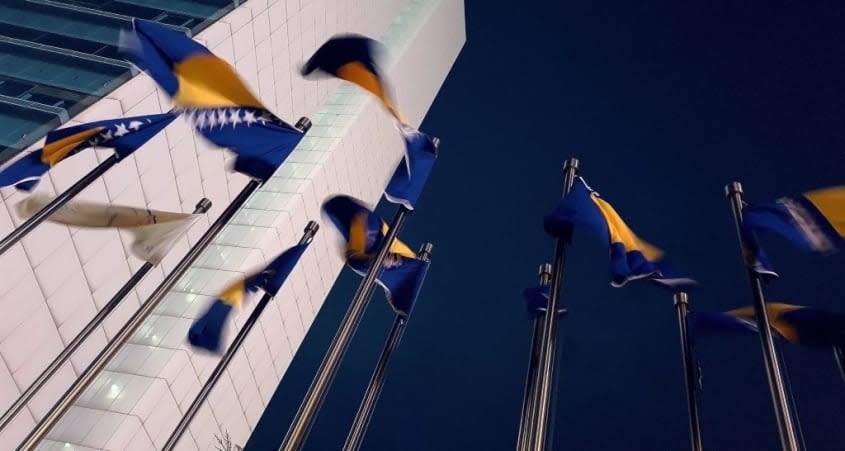Bosnian Serbs vote for greater autonomy, stoking fears of renewed conflict

Lawmakers in the lower house of the Republika Srpska passed a non-binding resolution Friday that would decouple the semi-autonomous republic from Bosnia's tax system, military, and judicial system, Reuters reports.
The Republika Srpska — also known as the Bosnian Serb Republic — was set up under international auspices in 1995.
Lawmakers who opposed the measure warned that it was a step back toward the dark days of the Bosnian War. Many members of the international community concurred, with the embassies of the United States, the United Kingdom, France, Germany, Italy, and the European Union releasing a joint statement calling the resolution an "escalatory step."
The Associated Press reports that tensions in the western Balkans are on the agenda for the G7 summit that opened Saturday in Liverpool.
For proponents of greater autonomy, the entire system that was set up at the end of the Bosnian War was a mistake. Milorad Dodik, the Serb member of Bosnia's three-person inter-ethnic presidency, favors removing the framework established in 1995 by the Dayton Agreement. "Bosnia is an experiment ... I don't believe it can survive because it does not have an internal capacity to survive," he said.
Under the Dayton framework, Bosnia and Herzegovina remains one nation but is divided into two enclaves: the ethnically Serbian Republika Srpska and the ethnically Croat and Bosniak Federation of Bosnia and Herzegovina. Most governmental functions devolve to the semi-autonomous governments of these entities. The nation's presidency is constitutionally required to be made up of a Serbian, a Croat, and a Bosniak.
You may also like
Jill Biden shuts down claims that president is mentally unfit: 'Ridiculous'
Is the dream of an 'emerging Democratic majority' dead?
Kathy Griffin slams CNN for firing her but not Jeffrey Toobin

